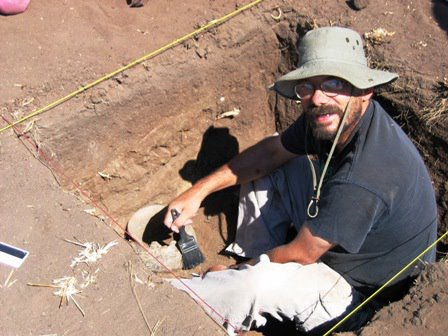In response to my recent comments on a Ministry in Arizona acquiring a fragment of the Dead Sea Scrolls, I received an email from the "antiquities broker" regarding the origin of the fragment. Since I voiced my significant concern over the possible origins of the piece, I thought I should share his response. In brief, he assures me that 1) he deals in antiquities only if they have traces of writing (his interest is specifically in writing, not general archaeology); 2) everything he has bought, sold, displayed or appraised has been acquired legally; 3) all pieces have been looked at by scholars in Israel and/or the United States; 4) all pieces are destined to be legitimately published by scholars; 5) all material has, at his expense, been reconserved by experts, mostly in Europe.
I sincerely appreciate the response and clarification (I would also point out that if you read the comments, Abnormal Interests always suspected the piece had some kind of legitimate origin). I am particularly gratified that any piece acquired is properly cared for, provenienced, examined and copied by scholars, and destined for publication.
However...
I still have serious reservations about the private ownership of antiquities; more to the point, I have serious concern with antiquities attaining any kind of market value. I can understand personal collection because of an interest in history (I don't condone it...I usually try to reason and educate people first about the need to protect archaeological sites, but protection comes first: although ultimately I will try to catch and jail anyone who illegally excavates or collects). Most of the "interested" however, tend to be casual collectors whose interests can be channeled in more effective ways (through volunteer programs, etc.). But once you attach a price to something, then it opens the door for all kinds of illegal activity and creates a monumental threat to our ability to reconstruct the past (most creationists would probably welcome the destruction of anything older than 6000 years!). As any good archaeologist will tell you, provenience (location, context, etc.) is often far more valuable a source of information than the piece itself. I often tell volunteers that archaeologists don't excavate objects, we excavate information. Antiquities are valuable for scientific purposes only in their original context. Adding a dollar value to objects significantly raises the probability that they will be looted and all scientific value lost.
But I believe there is also a moral aspect to pricing history. The desire to trade history for dollars bespeaks of loss of moral fabric equally as insidious as any drug addiction. Ranchers, farmers and other landowners whose first question upon finding a tyrannosaur skull is "How much can I get for it?" have lost the ethical and moral integrity so many conservatives claim this country needs.
I also still believe we risk information integrity if we allow religious institutions to own pieces of history - history that they can easily subvert into apologetics propoganda. It's one of the main reasons why I am concerned with the amount of evangelical Christian money being funneled into the mideast to do "biblical" archaeology. But that's a topic for another post...
Subscribe to:
Post Comments (Atom)




1 comment:
I can't believe how much of this I just wasn't aware of. Thank you for bringing more information to this topic for me. I'm truly grateful and really impressed.
Post a Comment